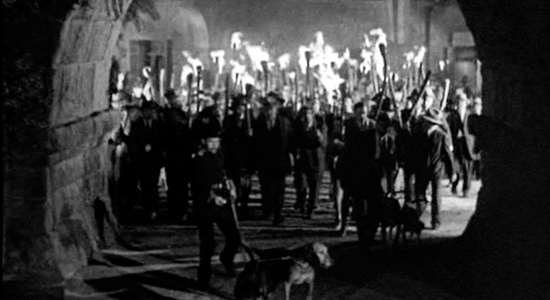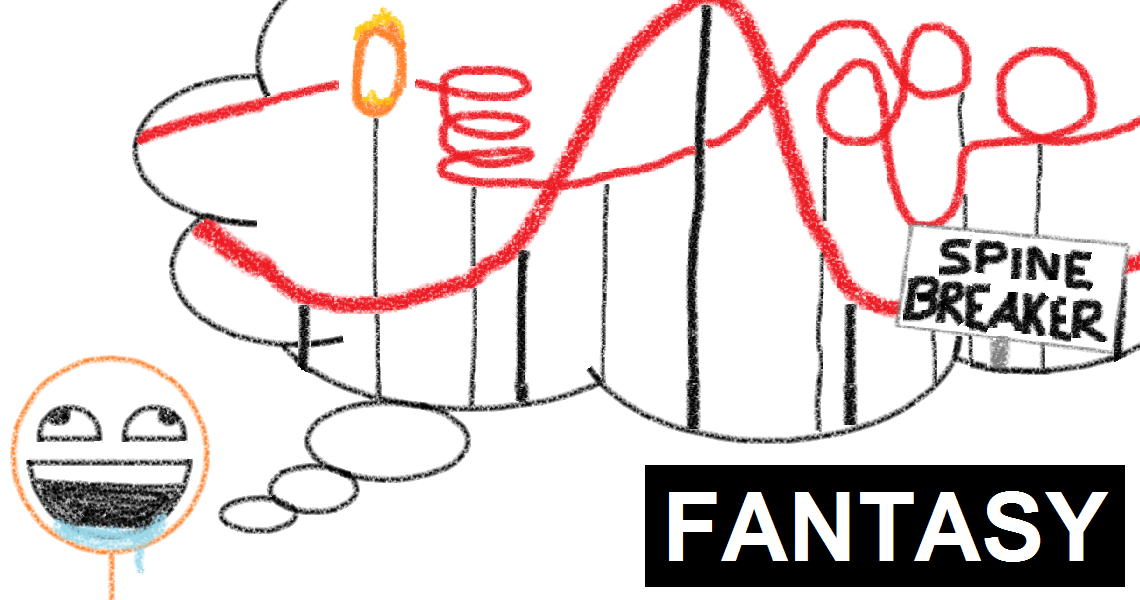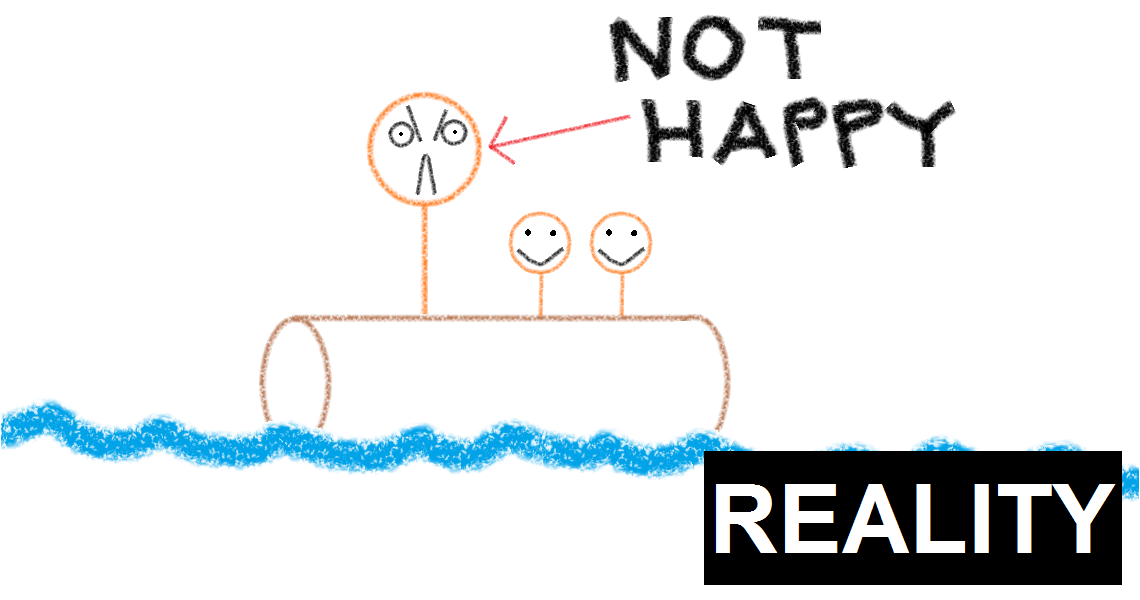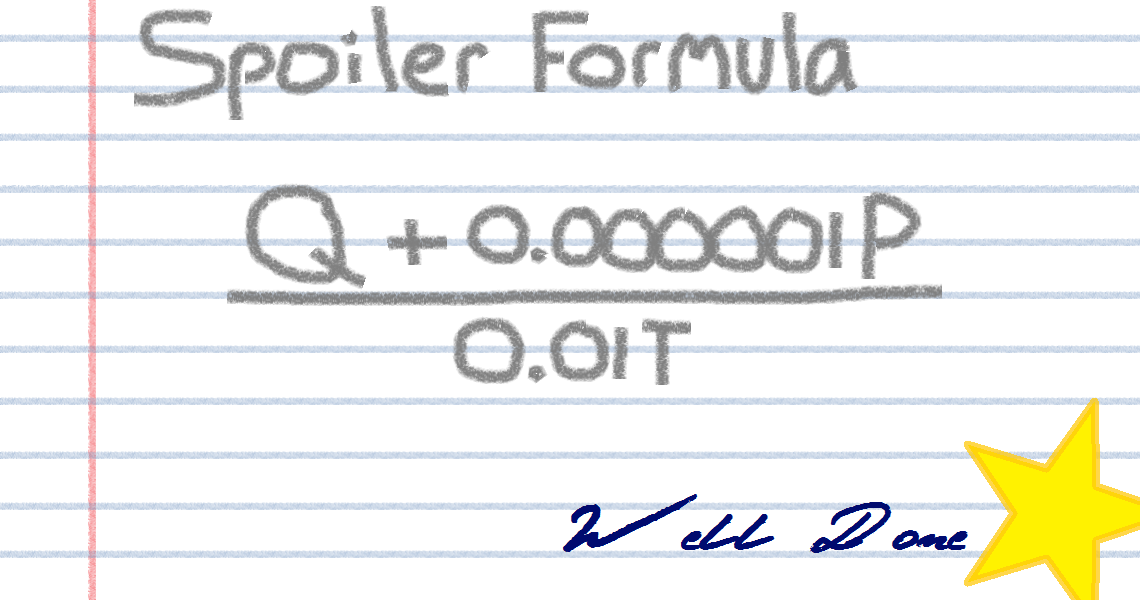The Nature of Spoilers

Spoilers suck. People who spoil movies suck. Articles that fail to effectively utilise SPOILER ALERTS suck. It’s a universal fact.
It’s a unique sensation that overrides your mind. Like lava meeting dry ice, chaotic infuriation fuses with lumping mesh of depression, creating this ugly, near-incomprehensible wad of emotion. It doesn’t matter who spoiled it for you (whether they’re your jerk-off co-worker or your sweet 5-year-old niece), they’ll still be greeted with a swift timely kick to the eye-socket for blurting out such blasphemy.
It gets me wondering about the nature of such a problematic force:
What is it?
How does it affect us?
When does it even matter anymore?
I can’t say I have all the answers, but I happily think I do. And even if I’m wrong or deluded, I have you fine people to correct me in the comments section (or die trying). So unless you’re one of those pretentious meta-hipsters who don’t want spoilers spoiled for you, read on.
What is a spoiler?
A spoiler is ultimately subjective: it’s a particular aspect from an artistic medium (films, books, theatre, etc.) that you’d have preferred to learn on your own, but was told to you by a third party. That third party can take many forms: an ignorant movie article, a stupid internet meme, an overly-enthusiastic friend who simply doesn’t know better.

The townsfolk hunting the jerk who spoiled the ending to Happy Feet 2.
But it’s really you who determines what prior knowledge hinders your movie-going experience. For most, it’s when they’re told about a vital plot turn which affects the rest of the story and that occurs after the film’s initial setup. For others, simply being told that there’s a plot twist is considered a spoiler.
We often bag trailers for revealing too much, prompting many to ignore trailers entirely. There’s always going to be a fickle bunch you cannot please. It makes it a bitch of a job for reviewers to try and critique a film without treading on an overly sensitive movie buff’s spoiler alarm.
However, I’m not going to hold back as to what I think does NOT count as a spoiler.
I got hounded once for a synopsis I did for We Need to Talk About Kevin, stating that Kevin goes on a killing spree. First of all, the accuser in question had not seen the film at that time, so they weren’t even sure if it was indeed a spoiler. Second, that particular aspect of the plot occurs very early on, acting as a device for one of the film’s main aspects: a mother dealing with a horrific incident caused by her son.
This brings me to the following proposition: if it’s a plot turn that sets up the general premise of the film, it’s not a spoiler.
I also recall a review for 127 Hours that mentions the arm-cutting scene and how terrifically affecting it is. Scrolling down even further, I found a very upset forum writer (is there any other kind?) who bagged the reviewer for spoiling the fact that the dude cut his arm off. Somehow, he/she managed to avoid any knowledge of the widely renowned true story the movie was based on.
Furthermore, the film is made in a way that tends to those who know about the true story. The arm-cutting scene is not presented as a surprise or a twist, but more as an eventuality. Even with all that in mind, the fact that you know he has to cut his arm off still won’t prepare you for how shocking the act is.
This brings me to my second proposition: if the film is based on a well-known true story, there are no spoilers.
Perhaps you disagree with my two established propositions, which is fine. I can handle you and your wrongness.
How does it affect the movie?
Here’s a common complaint you may find in the dingy alley of the local internet forums:
“Well, I was going to watch [x], but I know that [y] dies because some [f]ing [c] spoiled it for me. Now there’s no point.”
It’s a rather narrow attitude to hold, for it implies that the twist is the movie’s best/only bankable quality. If that were true, that movie mustn’t be particularly good to start off with (The Village being the only example I can think of).
No, a spoiler does not (or at least should not) destroy a film. Rather, it dampens a powerful/pinnacle moment in that film, and that often sucks balls. It can also decrease your motivation to watch a film.
Imagine you were told (by a friend) that you were going to go on the fastest rollercoaster in the world called The Spine Breaker. They tell you this thing is 70m high, goes at a speed of 125km/h and is responsible for several cases of near-fatal heart-attacks, seizure-inducing epilepsy and unexplained pregnancies. That’s how exciting this mo’ fo’ is.

Overloaded with anticipation, you amp yourself up for the cardiac arresting ride of your life. However, your friend is prone to hyperbole, taking you to something that completely dampens the initial anticipation you built up for yourself. Before you can even comprehend your immense level of anger, you’re in Rainbow’s End on the log flume.

That’s how sucky it can feel to have a vital moment spoiled for you. It’s not that the log flume’s a bad ride; your initial surprise has just been lost and downplayed significantly. But hey, the movie’s a theme park, and you can’t judge the whole recreation by one uneventful attraction.
When is it OK to release a spoiler?
Really, it’s never ok to blurt out a spoiler to an eager film fan who you know is ignorant of a given plot twist. However, in general conversation, there are movies that ascend to a level of popularity to which common knowledge of said twist is socially assumed, one of the most famous ones being that of The Sixth Sense.

The other ones being on this douchebag t-shirt
It turns out Bruce Willis was dead all along. If you’re reading this completely unaware of that fact until now, I can only assume you’ve been living under a rock on Pluto for the past two decades with a hearing disability and an unstable internet connection. Anyone who has even the faintest appreciation for cinema knows of this popular twist. Even I do, and I still haven’t seen the film. It’s embedded in pop-culture, with various other movies and TV shows paying reference to it (50 First Dates, Scrubs).
So it seems to be a matter of popularity: the more well-known a film is, the more likely the average person is to know about it, as well as its most renowned plot turns. This is in NO WAY meant to imply that everyone is aware of said plot turns. Rather, you can safely assume that the majority have that awareness, allowing you to converse in a spoiler-filled sanctuary.
So when do you know when a film has reached that level of popularity? Well, I’ve devised a mathematical formula that is 100% probably correct. It goes a little something like this:

Q = A Film’s Quality (ave. % rating on IMDb, in decimals)
T = Time Passed Since Film’s Initial Release (in years)
P = Film’s Popularity (no. of ratings on IMDb)
First to note: this should only be applied for films with a T value of ≥3, for it’s difficult to assess a film’s “classic status” within three years of its life. In other words, I picked a random number out of my ass and went with it as a restriction.
Second to note: I’ve assigned 10 as the “spoiler value” (for no particular reason). Any film with a score of 10 or higher should remain spoiler-free in general conversation. Anything below that value, and it’s free-game. Let’s try it out:
Citizen Kane
Q = 0.86 (8.6/10 star rating), T = 70 (released in 1940, roughly), P = 170,000 (# of IMDb ratings, roughly)
(0.86 + 0.000001(170,000)) / 0.01(70) = (0.86 + 0.17) / 0.7 = 1.03 / 0.7 = 1.47
I’ll try not to break your brain when I say this, but 1.47 < 10. Therefore, because it’s under the spoiler value, you have free speech to talk about the twist.
The Dark Knight
Q = 0.89, T = 5, P = 670,000
(0.89 + 0.000001(670,000)) / 0.01(5) = (0.89 + 0.67) / 0.05 = 1.56 / 0.05 = 31.2
31.2 > 10. Thus, because it’s above the spoiler value, you would rightly be considered an asshole for spoiling it without some sort of warning. Give it a few more years and you’ll see that number plummet under 10 in no time.
Battlefield Earth
Q = 0.24, T = 12, P = 46,000
(0.24 + 0.000001(46,000)) / 0.01(12) = (0.24 + 0.046) / 0.12 = 0.286 / 0.12 = 2.38
Again, under 10, so spoil away. While the film is not that old, it’s globally heralded as a tonne of shit, so no one’s gonna give any further of a shit if it’s spoiled for them.
Try it out if you’re daring. Perhaps you’ll find a counterexample to my leaky/air-tight mathematics. Maybe I’m a genius. You be the judge.
















